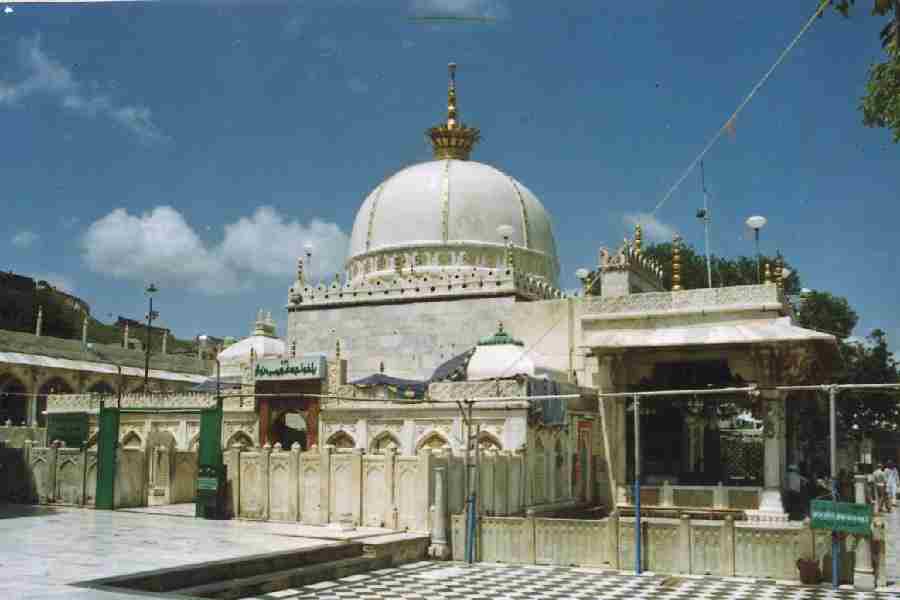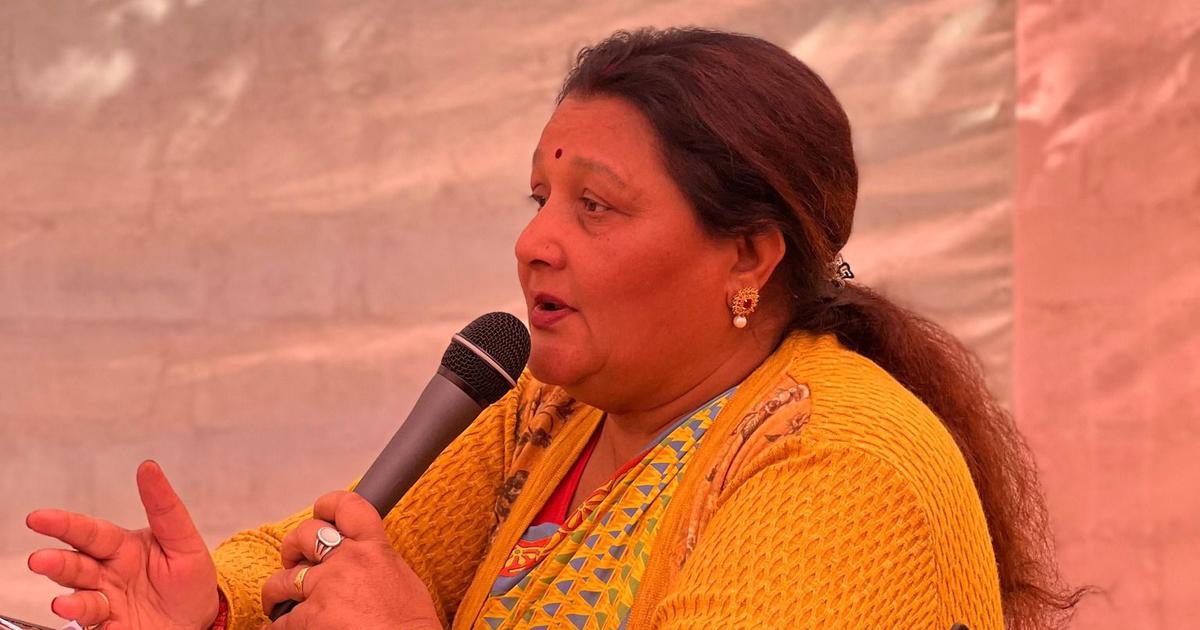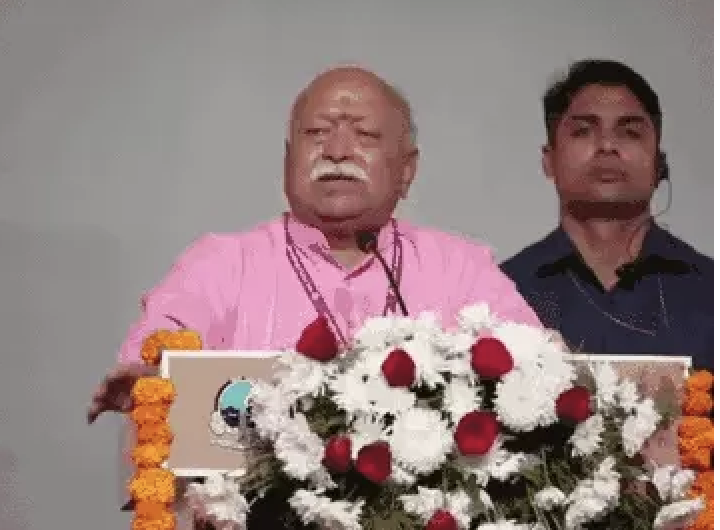
By Suhag Aseem Shukla
In American Veda, Phil Goldberg traces the journey of the first yogis from the shores of India to the West. Swami Vivekananda enthralled a Chicago audience in 1893 at the first World’s Parliament of Religions with his then novel articulation of the meditative transcendence of Raja Yoga, mutual respect, pluralism, and an omnipotent and immanent divinity. Many others followed, bringing yoga asanas, Vedantic philosophy, chanting, and kirtan. We read how these Hindu precepts form a common thread through the works of Emerson, Thoreau, and many modern American philosophers.
Despite the obvious imprint of Hinduism, Hindu Americans did not emerge as a demographic reality until the Immigration and Nationality Act of 1965, when waves of Indian immigrants, most of whom were Hindu, began to settle in the United States. Today, Hindu Americans number over 3 million, and a growing number are not of Indian ancestry. They’ve built hundreds of temples and count many more religious and cultural organizations throughout the country. Four members of the U.S. Congress are Hindu American, as are many more state level leaders and scores of political appointees.
Yet their numbers and influence do not protect Hindu Americans from a unique alienation. Just as President John F. Kennedy was impugned with false accusations of allegiance to the Vatican, or vice presidential candidate Senator Joseph Lieberman was pursued with allegations of loyalty to Israel, Hindu Americans are dogged with allegations of sympathies, even financial support, to the constantly shifting politics of the raucous democracy that defines India.
India’s current prime minister, Narendra Modi, was elected in 2014 after his party, the Bharatiya Janata Party (BJP), won an outright majority in the country’s Parliament. The BJP’s nationalist espousal of Hindutva — a conception that the Indian Supreme Court has defined as “related more to the way of life of the people in the subcontinent… a synonym of Indianization” — is reviled by political opponents. And even though the Supreme Court determined that Hindutva is not “to be equated with or understood as religious Hindu fundamentalism,” but rather a belief that all Indians should celebrate their shared civilizational heritage, antipathy to Modi is so visceral for some, including in the diaspora, that even long discarded canards justifying Islamism are resurrected.
Just last week, in fact, a critique of the Modi government published here in The Diplomat makes the incredible claim that Modi’s rise could lead to an increase in Indian Muslims joining terrorist organizations when, in reality, there have been almost no ISIS or Islamist attacks in India during the Modi administration over the past four years. The author also insists that unrest in the Indian state of Jammu and Kashmir, that has simmered since 1989, long before the BJP ever tasted power, is uniquely the fault of Modi. The definitive links to Pakistani support for terrorists on the ground and through corrupt proxies in Washington, D.C. find no mention. Nor does the cleansing of more than 300,000 Kashmiri Pandits (Hindus) from their ancestral homeland.
Enjoying this article? Click here to subscribe for full access. Just $5 a month.
While the robust Indian political process will offer an election in 2019, Hindu American politicians and advocacy and sociocultural organizations find themselves very often forced to answer for political battles in an India where most were not born, and some do not even share ancestry.
Ami Bera (D-CA), an Indian American born in California, who was only the second from the community after Dalip Singh Saund to be elected to the U.S. Congress, was targeted by Sikh separatists over the semantics used to describe the horrific anti-Sikh riots in the wake of Prime Minister Indira Gandhi’s assassination by her Sikh bodyguards nearly 35 years ago in New Delhi. He used the term “riots” and not “genocide” or “pogrom.” Ro Khanna (D-CA) faced dark insinuations of loyalty to India in a previously failed quest for a congressional seat, before he ultimately triumphed.
Tulsi Gabbard (D-HI), the first Hindu elected to the U.S. Congress, who has no Indian ancestry, nevertheless is pelted by racist and anti-Hindu bigotry during every election cycle. Just last month, before Gabbard handily won a primary challenge, she was targeted by an internet portal, infamous for its voluminous efforts to force American cities to take down statues celebrating Mahatma Gandhi’s nonviolence movement, for having met with Modi. This, even though the Indian prime minister was embraced by both Presidents Barack Obama and Donald Trump, personally met with dozens of U.S. Congressional leaders on multiple occasions, and even addressed a joint session of Congress. Hindu Americans previously came to Gabbard’s defense when not only Gabbard, but her temple, her spiritual mentor, and parents were maligned for embracing Hinduism.
Many Jewish American leaders and organizations are still singled out as proponents of a Zionist project, and many Muslims are queried for implied affiliations with the Muslim Brotherhood and Islamism. And so, too, Hindu American organizing is vilified as champions of varied alleged sympathies: Hindutva inspired violence, Brahminical/casteist oppression, or plain patriarchy. Over the last three years, Hindu Americans have been confronted by anti-Hindu groups organizing in California to oppose Hindu American efforts to correct glaring misrepresentations and distortions of Hinduism in school textbooks. “It’s only after I came to the United States that I learnt about what an oppressive construct Hinduism is,” one group member submitted during live, televised public testimony at the California School Board of Education, as hundreds of shocked Hindu children and parents looked on.
And now those same anti-Hindu groups are using well-tested oppositional tactics in launching a campaign against the upcoming World Hindu Conference in Chicago, to be held later this week. The conference, scheduled for September 7-9, is expecting 2,500 delegates and will feature such well-known global figures as the Dalai Lama, Sri Sri Ravi Shankar of the Art of Living Foundation, and the spiritual leaders of several Hindu religious organizations followed by millions of devotees within India and throughout the Hindu diaspora. Among them will be true believers of Hindutva, and those who reject the term and its implications. There will be activists and there will be public intellectuals. There will be CEOs and there will be poets and movie producers. They will be joined by Hindus and non-Hindus alike.
Unable to disrupt the conference, the same activists that opposed Hindu efforts to achieve equal representation in California textbooks, are relying on social media harassment tactics such as overtaking event hashtags or flooding direct message inboxes. They are also targeting several Hindu American legislators in a bid to frighten them out of attending the conference, even as senior political leaders from countries ranging from Suriname and Fiji to Germany, Norway, South Africa, and the United Kingdom are confirmed as attending.
If these bullying tactics are not enough, for a dozen years, opponents of Hindu American organizing have alleged that American “Hindutva” dollars are being sent to India to encourage and foment violence against minorities there. Even after these allegations were disproven and subsequently rejected, the activists persist today by regurgitating them as well as citing a controversial report on India commissioned by the United States Commission on International Religious Freedom (USCIRF), that, with some irony, was criticized for being authored by a Pakistani writer with ties to Indian separatist groups. The author’s background and lack of expertise also raised alarm bells for several members of Congress, who initiated inquiries into USCIRF’s vetting and review practices.
The USCIRF bias against India is considered so blatant for its asymmetry, that one of the commissioners took the unusual measure of penning a dissent against the commission’s annual rote condemnation of perceived ills in India. That Indian Americans would quote USCIRF to impugn Hindu American activism simply confirms the perverse extreme of the discourse. This reliance on USCIRF as a standard bearer of human rights, despite its long history of promoting an evangelical Christian agenda and having commissioners with overt anti-LGBT views, is similarly astonishing.
Within a generation, most Hindu Americans will have been born outside of India. But for them, like with other diasporic Hindus, India will always be a sacred geography — a spiritual homeland — where the mountains, rivers, temples, and towns come alive in the Sanskrit hymns of the ancient Vedic scriptures and revelations passed down by sages through an unerring oral tradition over five millennia. But it is for their home, America, that Tulsi Gabbard and many others donned military uniforms in Iraq and Afghanistan, and it is for America that many more are answering calls for public service across communities through volunteerism, interfaith activism and, increasingly, elected office — often inspired by their Hindu values.
Hinduism’s imprint on the American landscape, that began with Vivekananda and continues through the Tulsis and Rajas of the diaspora, is as lasting as it is inexorable. American Hinduism is alive in the yoga studio around the corner, the New Age self-help books of Deepak Chopra and Eckhart Tolle, the dozens of states and even school districts that recognize and celebrate the festival of Diwali, and in the growing adoption of Hindu precepts of nonviolence and respect for the environment — Hindus comprise most of the world’s vegetarians— and Earth as an embodiment of the mother Goddess. Ascribing a sinister agenda or affiliations when Hindus enter the public square, advocate for their rights, support charitable causes in India, or host conferences to gather and celebrate among faithful, must be called out as anti-Hindu and repudiated.
This story was first appeared on thediplomat.com






